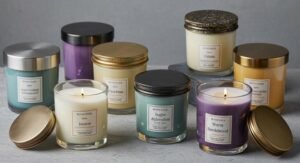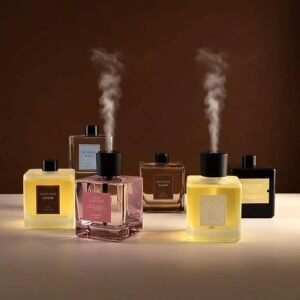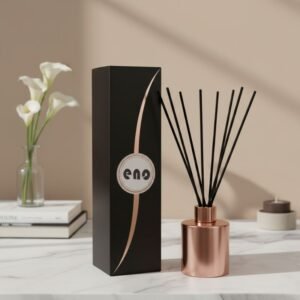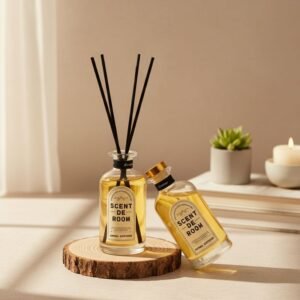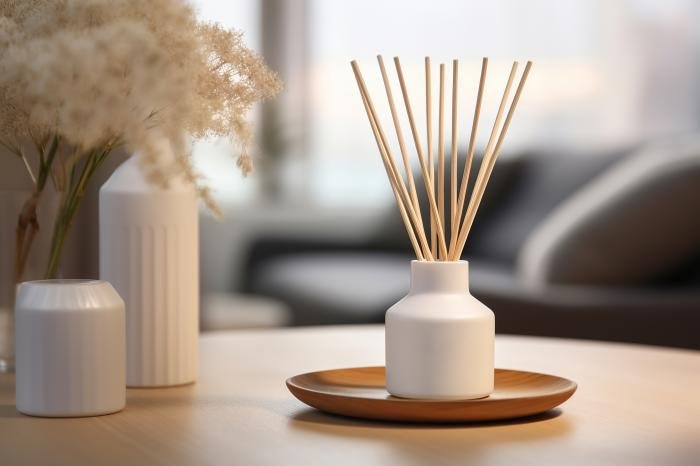
Understanding how scent marketing transforms retail environments requires examining the technology behind effective facility management solutions.
What Key Features Define a Top-Quality Commercial Scent Diffuser?
Choosing the wrong commercial scent diffuser can lead to uneven coverage, maintenance headaches, and wasted investment across your entire facility network.
A top-quality commercial scent diffuser combines programmable diffusion controls, extensive scent coverage capabilities, advanced nebulization technology, and centralized scenting management to deliver consistent, professional-grade ambient experiences.
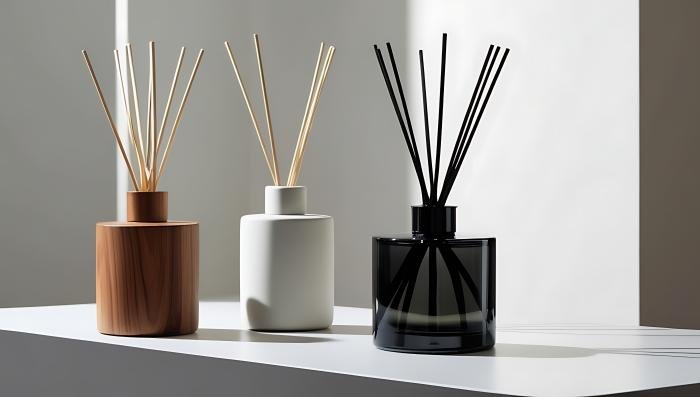
Advanced Nebulization Technology and Scent Delivery
The foundation of superior commercial scenting lies in nebulization technology that transforms liquid fragrance oils into micro-particles without water dilution. This dry vapor method ensures maximum scent integrity while preventing moisture damage to HVAC systems. Quality units feature atomization chambers that create particles smaller than 50 microns, enabling seamless integration with existing ventilation systems.
HVAC scenting systems represent the pinnacle of commercial diffusion technology. These units connect directly to air handling systems, distributing fragrance through existing ductwork for uniform coverage across multiple zones. The waterless operation eliminates bacterial growth concerns while maintaining consistent scent intensity throughout large commercial spaces.
Programmable Control Systems and Coverage Optimization
Modern commercial diffusers excel through sophisticated programming capabilities that match operational schedules with scent delivery patterns. Advanced units offer 24/7 scheduling with intensity adjustments, allowing facility managers to optimize fragrance levels during peak hours while conserving oils during off-peak periods.
| Feature | Standard Units | Professional Grade |
|---|---|---|
| Coverage Area | 500-1,000 sq ft | 5,000-50,000 sq ft |
| Programming Options | Basic timer | 7-day scheduling + WiFi |
| Scent Intensity Levels | 3-5 settings | 10+ variable levels |
| Refill Cycle | Weekly | Monthly to quarterly |
| Service Requirements | Manual monitoring | Automated alerts |
Centralized scenting capabilities enable management of multiple locations from a single dashboard, streamlining maintenance schedules and ensuring brand consistency across facility networks. This approach reduces operational complexity while maximizing scent coverage efficiency for enterprise-level implementations.
How Does Scent Consistency Impact Your Business Environment?
Poor scent distribution undermines customer experience and brand identity. Inconsistent fragrance delivery confuses visitors and weakens your carefully crafted atmosphere. Professional scenting systems deliver reliable, uniform coverage.
Scent consistency directly influences customer perception, brand recognition, and business success through uniform fragrance distribution across all areas. Proper particle distribution and scent cycling prevent olfactory fatigue while maintaining optimal coverage.

The Science Behind Consistent Scent Profiles
Fragrance consistency depends on precise particle distribution and controlled scent cycling mechanisms. Professional scenting systems maintain uniform concentration levels across different zones, preventing weak spots that break the sensory experience. Advanced diffusion technology ensures each customer encounters the same scent intensity, regardless of their location within your facility.
Olfactory fatigue poses significant challenges for commercial environments. When exposed to constant fragrances, human noses adapt and lose sensitivity within 15-20 minutes. Quality scenting systems combat this through intelligent cycling patterns that refresh the olfactory experience without overwhelming visitors.
Business Impact and Brand Recognition Benefits
Consistent scenting strengthens brand recognition by up to 30% according to recent studies. When customers experience identical scent profiles across multiple locations, they develop stronger emotional connections to your brand. This consistency translates to increased dwell time, higher purchase likelihood, and improved customer loyalty.
| Consistency Factor | Business Impact | Customer Behavior Change |
|---|---|---|
| Uniform Coverage | +25% brand recall | Longer facility visits |
| Scent Cycling | -40% olfactory fatigue | Enhanced sensory engagement |
| Profile Matching | +30% brand recognition | Stronger emotional connection |
| Particle Distribution | +20% coverage efficiency | Consistent experience quality |
Loveeno’s commercial systems excel in maintaining fragrance consistency through advanced particle distribution technology and intelligent scent cycling protocols, ensuring your business environment delivers the intended sensory impact throughout operating hours.
What Maintenance Requirements Should You Consider for Long-term Operation?
Poor maintenance planning can transform your premium scenting investment into a costly operational nightmare with unexpected downtime and service calls.
Commercial scenting systems require regular refill cartridges replacement, filter maintenance, and remote monitoring to ensure optimal performance and minimize energy consumption across multi-location deployments.
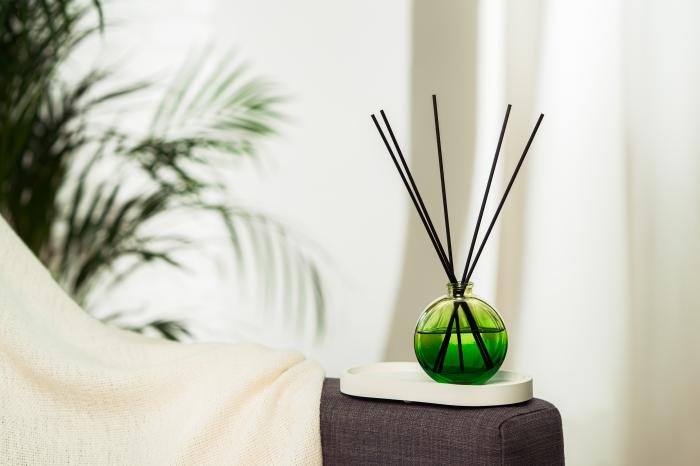
Essential Service Intervals and Component Replacement
Modern commercial scenting systems demand structured maintenance schedules to maintain consistent performance. Refill cartridges typically require replacement every 30-60 days depending on coverage area and intensity settings. Filter replacement schedules vary by environment, with high-traffic retail locations needing monthly changes while office environments may extend to quarterly intervals.
Remote monitoring capabilities significantly reduce maintenance complexity by providing real-time alerts for low cartridge levels and system diagnostics. Advanced systems like those from Loveeno integrate seamlessly with facility management platforms, automatically scheduling service visits before issues arise.
Energy Consumption and Cost Optimization
Energy-efficient units consuming approximately 13W minimize operational costs while maintaining powerful scent distribution. Energy consumption monitoring through connected systems helps facility managers optimize usage patterns and reduce unnecessary runtime during off-hours.
| Maintenance Component | Service Interval | Estimated Cost Range |
|---|---|---|
| Fragrance cartridges | 30-60 days | $30-100/month |
| HEPA filters | 60-90 days | $15-25/unit |
| System cleaning | Monthly | $50-75/visit |
| Remote diagnostics | Real-time | Included in service |
Maintenance requirements planning should factor in bulk purchasing agreements for cartridges and establishing preferred service provider relationships. Centralized scenting logistics across multiple locations can reduce per-unit service intervals costs by 20-30% through consolidated scheduling and volume purchasing power.
How Do Different Scent Delivery Systems Compare for Retail Applications?
Facility managers face overwhelming choices when selecting scenting systems, often struggling with incompatible coverage areas and maintenance headaches that drain operational budgets.
Commercial retail scenting systems differ primarily in coverage area, HVAC integration capabilities, and maintenance requirements, with nebulizing systems offering superior performance for large department stores while standalone units serve smaller retail spaces effectively.

Coverage Area and HVAC Integration Performance
Coverage area varies dramatically between system types. Standalone units typically serve 500-2,000 square feet, making them suitable for boutiques and small retail spaces. HVAC-integrated systems excel in department stores, covering 5,000-50,000 square feet through existing airflow infrastructure. These systems leverage centralized air distribution for uniform scent zoning across multiple departments.
Nebulizing technology offers the most consistent scent quality over large areas. Unlike heat-based diffusion, cold-air nebulizing preserves fragrance integrity while delivering precise scent intensity control. This technology integrates seamlessly with modern HVAC systems, allowing facility managers to create distinct scenting zones for different product categories.
Maintenance Requirements and Service Logistics
| System Type | Refill Frequency | Service Requirements | Coverage Area | Initial Investment |
|---|---|---|---|---|
| Standalone Units | 30-60 days | Basic cleaning | 500-2,000 sq ft | $200-800 |
| HVAC-Integrated | 60-90 days | Professional service | 5,000-50,000 sq ft | $2,000-15,000 |
| Nebulizing Systems | 90-120 days | Quarterly maintenance | 10,000+ sq ft | $5,000-25,000 |
Maintenance simplicity directly impacts operational costs. Standalone units require frequent refill cycles but offer simple cartridge replacement. HVAC-integrated systems demand less frequent attention but require professional service contracts. Entrance scenting applications often benefit from hybrid approaches, combining standalone units for immediate impact with integrated systems for sustained background scenting throughout retail chains.
What Return on Investment Can You Expect from Advanced Scenting Technology?
Facility managers face mounting pressure to justify operational investments while retail chains demand measurable performance improvements.
Advanced scenting technology delivers measurable ROI through increased customer dwell time, enhanced purchase behavior, and improved operational efficiency. Studies show up to 23% boost in consumer spending with properly implemented commercial scenting systems.
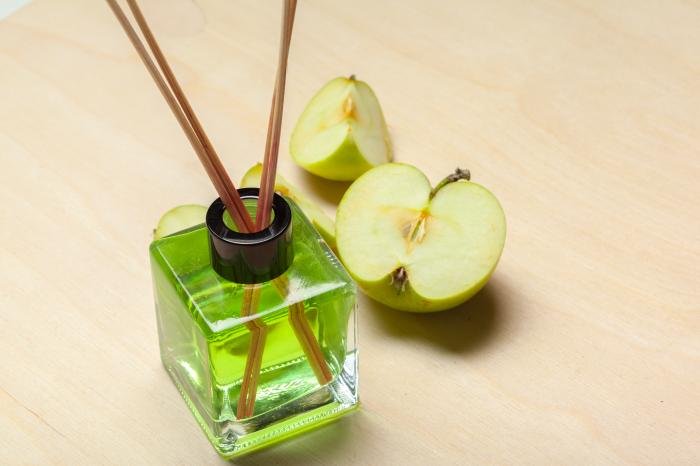
Quantifying Performance Metrics and Revenue Impact
Customer dwell time increases by at least 15 minutes in scented environments, directly correlating with higher sales conversion rates. This extended engagement translates to measurable revenue growth for retail chains. Purchase behavior studies demonstrate that properly calibrated scenting systems can boost consumer spending by up to 23% compared to unscented spaces.
The implementation timeline typically spans 30-60 days for large facilities, with initial results visible within the first quarter. Loveeno’s centralized scenting logistics reduce deployment complexity, allowing facility managers to track performance metrics across multiple locations simultaneously.
Cost-Benefit Analysis and Operational Considerations
Initial investment costs average $350 per commercial unit, with annual operational costs around $120 for maintenance and refill cycles. However, advanced systems minimize ongoing expenses through automated dispensing and predictive maintenance features.
| Investment Factor | Initial Cost | Annual Operating | ROI Timeline |
|---|---|---|---|
| Equipment & Installation | $350-500/unit | $120-180/unit | 6-12 months |
| Scent Refills | Included | $60-90/unit | Ongoing |
| Service Contracts | Optional | $240-360/unit | 12-18 months |
The cost-benefit analysis reveals positive returns within 6-12 months for most commercial applications. Service contracts and centralized refill cycles further optimize operational efficiency while maintaining consistent scent quality across all coverage areas.
Conclusion
Selecting the best commercial scent diffuser requires balancing coverage capabilities, maintenance requirements, and ROI potential to transform your business environment. Professional scenting systems with HVAC integration, programmable controls, and nebulizing technology deliver consistent customer experiences that drive measurable revenue growth. Implement a comprehensive scent marketing strategy today to enhance facility management efficiency while creating memorable brand experiences that keep customers engaged and returning to your retail locations.
FAQ
Q1: What is the best commercial scent diffuser for large spaces?
The best commercial scent diffuser for large spaces typically features a high capacity, such as 400 mL or more, and can cover areas up to 2000 sq.ft. Look for models with centralized scenting capabilities and refill cartridges for easy maintenance and fragrance consistency.
Q2: How often do commercial scent diffusers need refilling?
The refill cycle for commercial scent diffusers depends on the model and usage. High-capacity diffusers with centralized scenting may require refills every 4-6 weeks, while others might need more frequent attention. Service contracts can help manage refill logistics efficiently.
Q3: What are the benefits of centralized scenting in commercial spaces?
Centralized scenting ensures uniform fragrance distribution across large areas, enhancing customer experience and brand identity. It also simplifies maintenance with refill cartridges and reduces the need for multiple diffusers, making it cost-effective for facility managers.
Q4: How do I maintain a commercial scent diffuser for optimal performance?
Regular maintenance includes cleaning the diffuser, replacing refill cartridges, and checking for clogs. Opt for models with easy-to-access parts and consider service contracts for hassle-free upkeep and consistent fragrance delivery.
Q5: Can commercial scent diffusers integrate with HVAC systems?
Yes, many advanced commercial scent diffusers are designed to integrate seamlessly with HVAC systems, providing efficient scent coverage across large facilities. These systems often feature centralized scenting and customizable fragrance options.

